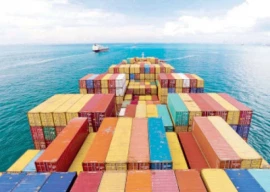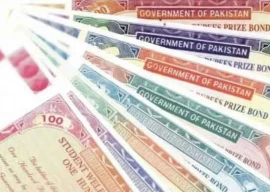
Economic nationalists argue that the anti-red tape revolution could spur economic growth in the best interest of the country. However, the government must curtail the thickets of bureaucracy and cabinet while adopting austerity measures.
Industrialists in Karachi struggle to interact and deal with approximately 69 authorities, agencies, and departments to conduct their operations peacefully and harmoniously. In due course, they receive and must respond to notices, show-cause orders, inspections, audits, surveys, and routine record checks.
Eminent business leader and industrialist Riazuddin stated that Pakistan Single Window (PSW) has been formed to fulfil all import, export, and transit-related regulatory requirements. The government must establish a one-window operation for both federal and provincial governments to ensure efficiency and eliminate bureaucratic hurdles in the interest of economic growth.
The benefits of an extensive cabinet and bureaucracy are difficult to discern, while funds are often wasted and stolen. Reducing the number of tax departments and combining them into a single-window operation would be the best approach. This strategy would address poor governance in the country. There is no need for an excessive number of officials and state-owned organisations that are harming the country and impeding its economic growth.
"Instead of satisfying the government, let us focus on innovation, products, the welfare of industrial workers, exports, and similar priorities. Abolishing the multiplicity and duplicity of taxes and curtailing the size of the governmentboth cabinet and bureaucracyis mandatory and unavoidable," he said.
He pointed out that tax officials are being provided cars without performance targets. The Federal Board of Revenue (FBR) must implement a policy where an officer must collect at least Rs40 million in taxes to qualify for a car worth Rs4 million.
Senior economic expert and strategist Dr Mehmoodul Hassan Khan stated, "Anti-red tape initiatives have gained immense momentum worldwide, achieving significant social development and sustainable economic growth. Ironically, Javier Milei, Narendra Modi, and Donald Trump have become icons of anti-red tape, benefiting their states, societies, systems, private sectors, and industries alike."
The government of Pakistan could remove red tape and achieve high levels of tax collection, exports, manufacturing capacity, social development, economic diversification, green transformation, and budgetary discipline through e-governance, e-commerce, financial digitalisation, separation of powers, accountability, and transparency.
Moreover, deregulation, decentralisation, depoliticisation, decartelisation, and the removal of cronyism would lead to good and corporate governance, promoting a fair, free, and just business and economic environment in the country.
He noted that, unfortunately, Pakistan's bureaucracy has become irrelevant, unproductive, and unsupportive, dominated by the absence of the rule of law, meritocracy, and accountability. It has been trapped in deep unprofessionalism, dishonesty, and malpractice, eroding professional ethics and damaging civil service codes by indulging in massive plundering, embezzlement, financial frauds, and scams.
Ambiguities in laws are designed to extract bribes from businessmen for approvals. Policy flaws are deliberately formulated to facilitate fraud and harass investors.
The euphoria of authority, discretion syndrome, the mad race for wealth, and widespread corruption have become hallmarks of Pakistan's bureaucracy and the institutionalisation of corruption. The prevalence of cognitive dissonance and the influence of entrenched bureaucratic chains are the main reasons red tape hinders Pakistan's development.
He further highlighted that the politicisation of bureaucracy, policy inconsistency, whimsical management styles, unchecked greed, undemocratic wealth distribution, weak national accountability mechanisms, lack of transparency, a fragile justice system, and the formation of an elitist economy contribute to the persistence of bureaucratic hurdles. The absence of strong political will and determination exacerbates the problem.
Continued and constant structural reforms, the formation of an anti-red tape authority modelled after Singapore, the Philippines, and Scandinavian countries, the development of a responsive state apparatus like Uzbekistan, the adoption of China's zero-corruption narrative, and a comprehensive overhaul of the justice system are the way forward.























COMMENTS
Comments are moderated and generally will be posted if they are on-topic and not abusive.
For more information, please see our Comments FAQ